Only good movies
Get the Indie Focus newsletter, Mark Olsen's weekly guide to the world of cinema.
You may occasionally receive promotional content from the Los Angeles Times.
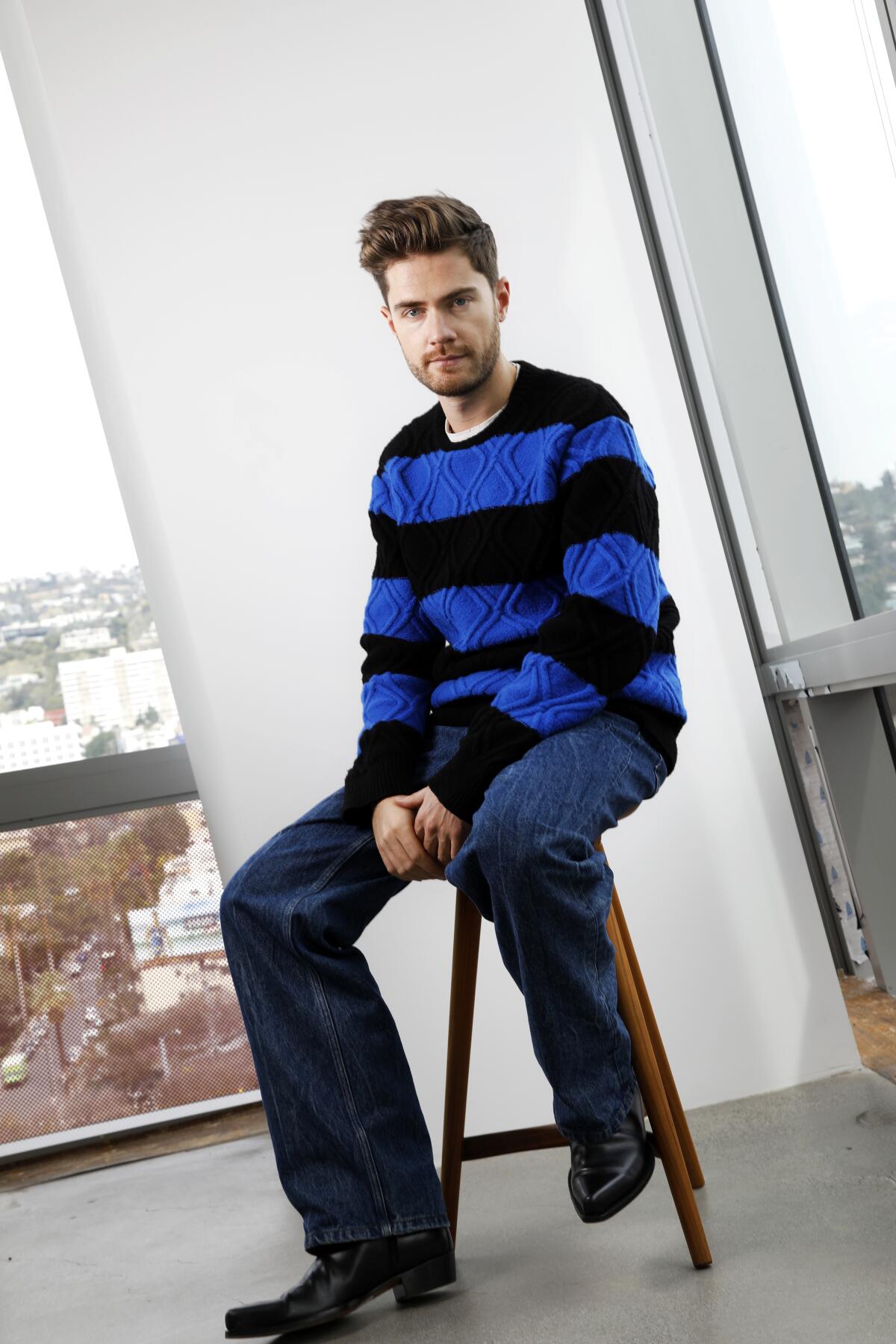
Two years ago, award-winning Belgian director Lukas Dhont rode a train between the Flemish cities of Antwerp and Ghent. Despite wearing headphones, the filmmaker still noticed the enthralling presence of the person sitting next to him.
“As I looked over, I see this young angel — one can’t describe him any other way — talking with his friends, being very expressive, eyes on fire,” Dhont told The Times during a recent interview in West Hollywood. “I thought, ‘I’m going to regret if I don’t speak to him.’”
That magnetic teen, Eden Dambrine, would ultimately play the lead role in Dhont’s lauded second feature “Close,” in theaters Friday. “I’m in ballet school,” said Dambrine over video call. “I never thought that I would be an actor or interested in cinema one day.”
Nominated for the Oscar for international feature, the heart-rending drama captures that special moment in life between childhood and puberty from the vantage point of two 13-year-old boys whose friendship is undermined by society’s expectations of masculinity.
For Dhont, “Close” began with the realization that images of men fighting have long flooded our screens, becoming the only accepted mode of engagement between them. Seeing men holding on to each other with platonic affection remains a much rarer sight.
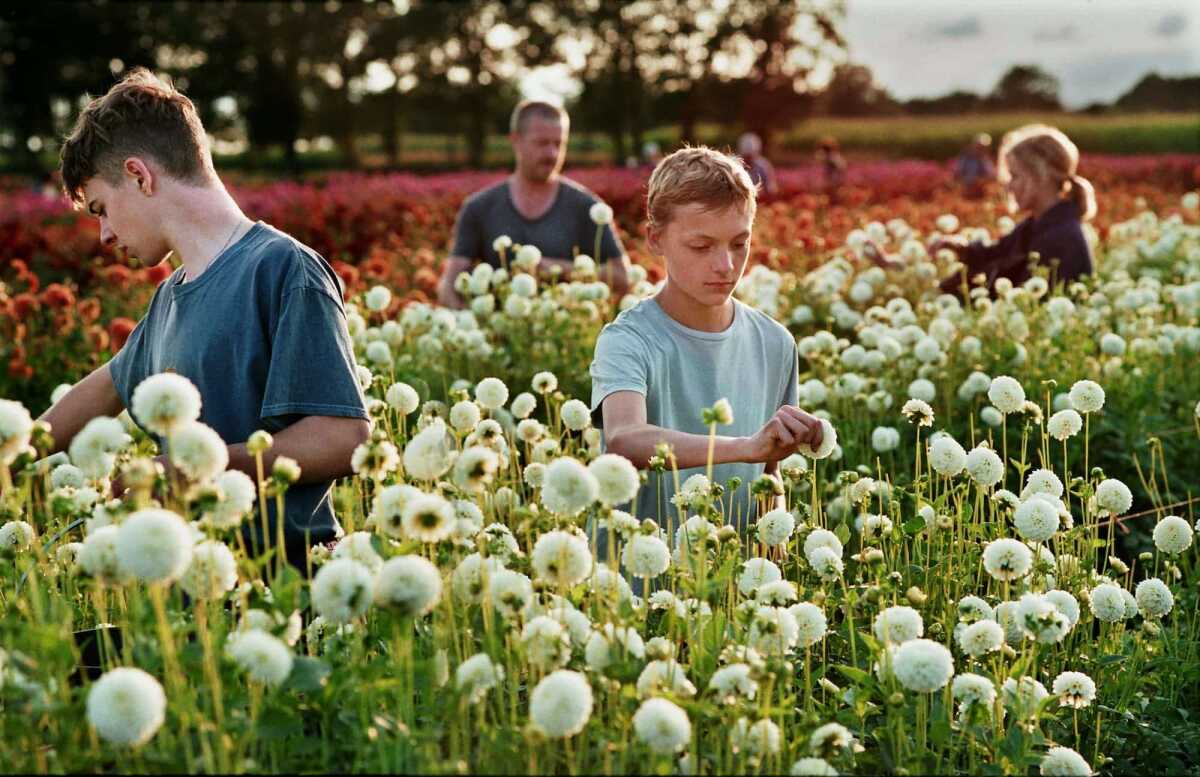
The writer-director’s desire to reshape the depiction of masculinity in movies intensified after reading 2011’s “Deep Secrets: Boys’ Friendships and the Crisis of Connection” by American psychologist Niobe Way, who followed a group of 150 boys ages 13 to 18 and inquired about their friendships over time.
“At the age of 13, these boys talk about each other in the most loving, tender, beautiful way,” said Dhont. “These are testimonies of love, and they dare to use that word openly.”
But as the young men went through puberty, their responses to Way’s questions drastically changed. With the codes and pressures of masculinity looming ever larger, they came to see emotion as weakness and to fear being perceived as feminine — often at the expense of authentic connections. It’s precisely around this age that the suicide rate for men becomes four times higher than that for women.
“I strongly connected to these young men on the page, even if I hadn’t met them, because in that moment in time in my own life, I also started to fear intimacy with other young men. I started to push away,” said Dhont. “It’s something that I deeply regret now.”
By the time he met Dambrine on that serendipitous train ride, Dhont had almost completed the writing process for “Close” and had visited multiple schools around Brussels actively looking for nonprofessionals to star in the film. In one of those talent scouting visits, Dhont saw Gustav De Waele, the other boy in the equation, performing with his theater class.
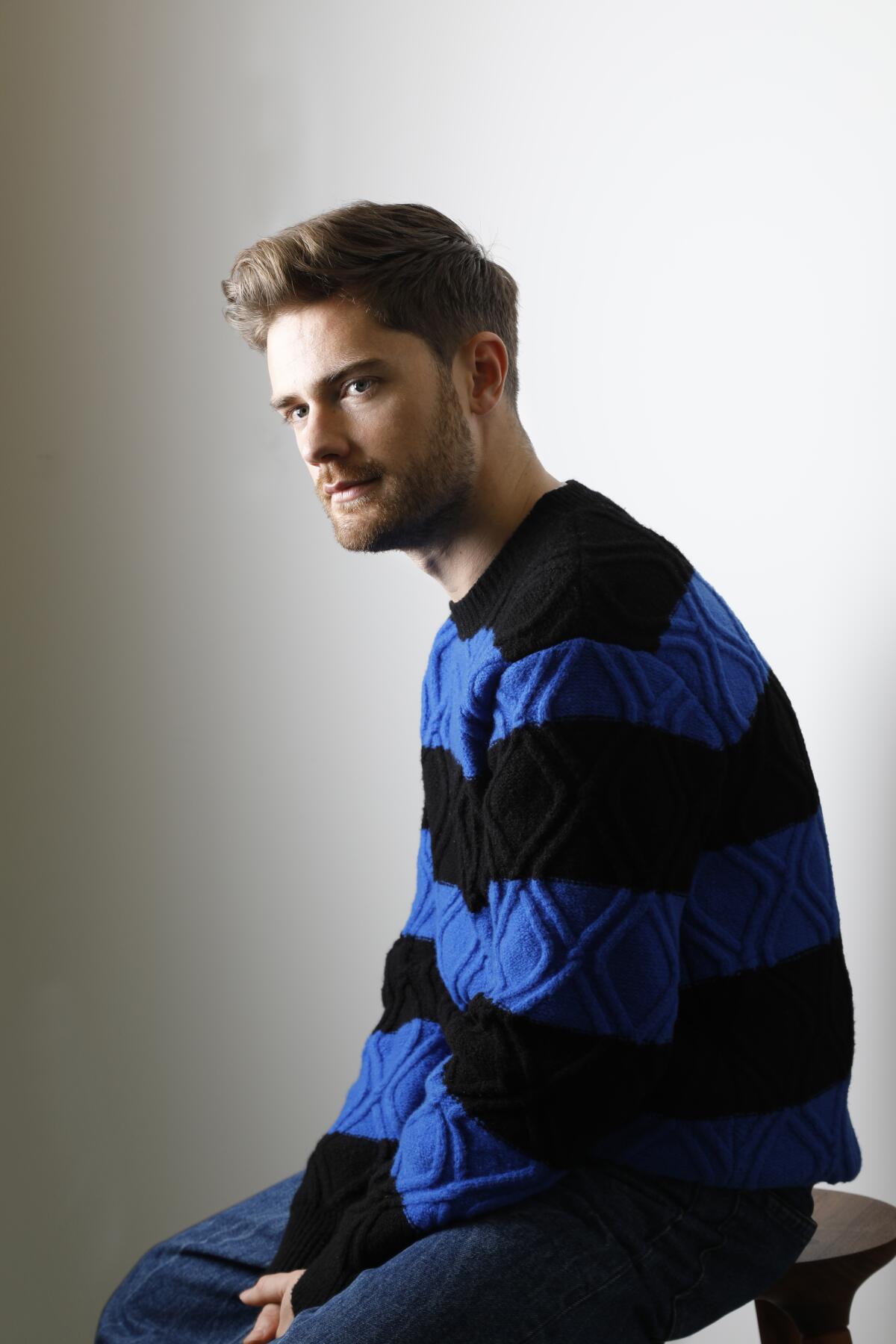
However, Dhont didn’t cast either of them right away. They both attended a full-day workshop with a group of 30 other boys, where they played games and interacted with each other to test their chemistry. Dambrine and De Waele became fast friends.
Dhont describes their instantaneous camaraderie with a French saying, “Parce que c’était lui; parce que c’était moi” (“Because it was he; because it was I”), which describes the inexplicable reason why some relationships simply work from the outset with ease.
During the last stage of the casting process, the director shared the screenplay with them so that they knew what the story entailed before signing on. “It’s important for me that it’s not only us choosing them, but also them choosing us,” added Dhont.
With everyone on board, Dhont and his two novice actors embarked on six months of rehearsals, from January to July 2021. Since neither had been in front of a camera in any professional setting, Dhont needed to prepare them before arriving on set.
But rehearsing didn’t mean going over concrete scenes. Instead, they spent time together with him, with each other and with the adult actors playing their parents. These get-togethers, Dhont recalls, often involved him making pancakes for the hungry adolescents.
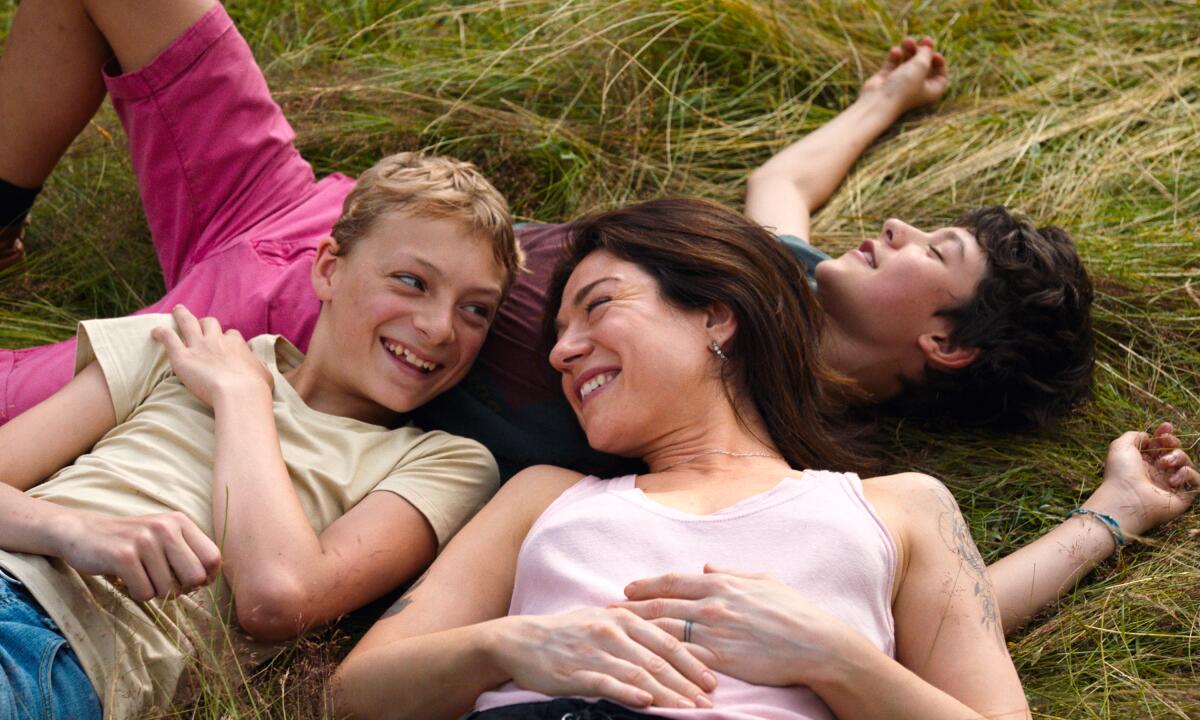
“Sometimes as we were preparing the batter for the pancakes, I’d be like, ‘Why do you think Rémi is so emotional there?’ They become detectives trying to find out why their characters are the way they are,” said Dhont. “They are the shapers of their own character. They don’t get dictated what it should be. They fill in what it should be for them.”
Early on during this training, Dhont brought in a camera to film them as they talked, so the boys would understand that even when the camera was rolling, they needn’t put on an artificial performance. He also encouraged them to forget the dialogue on the page and reinterpret it in their own words.
Dhont believes these to be the keys to achieving performances that feel naturalistic. In turn, listening to the boys’ still-untainted emotional intelligence influenced how the final screenplay turned out.
“I believe we can learn many things from listening to 13-year-olds, because they are still so closely connected to the hearts,” said Dhont. “They’re so uncensored and don’t adapt to what society wants them to say, so they say such radical things.”
Dambrine plays Léo, a kid from the Flemish countryside who begins to distance himself from his best friend, Rémi (De Waele), after some of their classmates imply the pair must be a gay couple given the physical and emotional closeness of their bond.
“When we discussed it, I always said, ‘I don’t really care about the sexual identity of these characters,’” recalled Dhont. “They can be whatever, because it’s not really about that.”
Dhont believes society is so unused to seeing depictions of intimacy between young men, people are conditioned to immediately interpret them as sexual.
“When you see two girls playing with each other, hugging each other, you think it’s normal,” added Dambrine. “But when you see two boys doing it, they have to be a couple?”
Léo turns away from Rémi after outside judgment poisons their connection and joins an ice hockey team to fit himself into gendered stereotypes. “He tries to find his masculinity with ‘the cool boys,’” said Dambrine. “He didn’t want to not be friends with Rémi anymore but was scared of his own feeling for him as a best friend.”
Dhont chose ice hockey as Léo’s sport because of the uniform, which, to him, resembled a suit of armor, mask and all, that prevents physical touch and conceals the grief that the protagonist feels. For the director, the ice hockey team called to mind a flock of birds always moving in the same direction.
“Léo wants to fly in the same direction as the others,” noted Dhont. “He is someone who wants to belong to many, maybe, rather than to one, who wants to perform this dance, which is beautiful, but also disturbing with the other birds.”
Dhont set the coming-of-age tale in the Flemish countryside, where he grew up, amid flower fields. For him, the image of two boys running through these colorful landscapes served as an ode to the freedom and innocence of childhood, while the flowers themselves are a metaphor for the fragility of life.
In turn, the other male characters in “Close” also defy the equation of masculinity with the suppression of emotion: Léo’s older brother responds to his younger sibling’s pain with physical comfort; Rémi’s father cries at the dinner table, unable to hide the sorrow that plagues him.
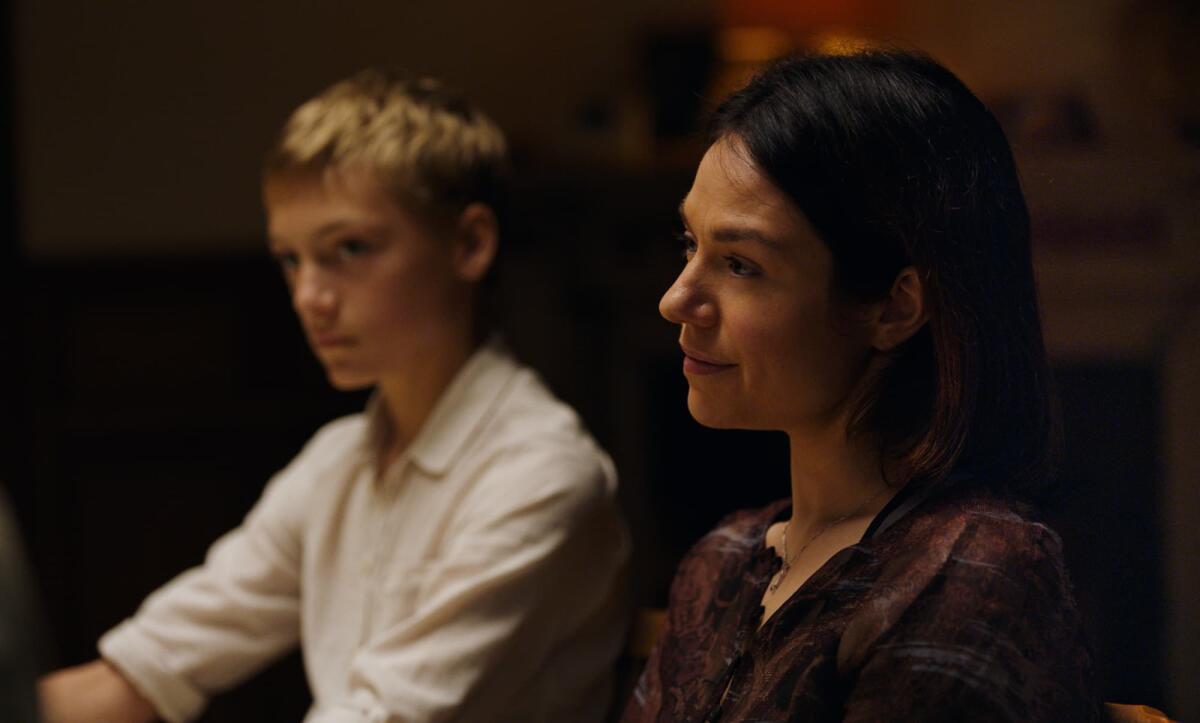
Dambrine’s father evinced similar openness when he watched “Close” for the first time: “When my father saw it at the Cannes Film Festival, he cried, which is really rare because he doesn’t cry a lot,” said Dambrine. “I was really touched by this.”
Thinking about the positive international reception for “Close,” Dhont dished on an English-language expression often employed to justify toxic masculinity.
“I hate the saying ‘boys will be boys,’” said Dhont. “It shows a complete disbelief in men and their tenderness. We’re excusing them for the worst, but most of them don’t want to do the worst. They just live in a society that clearly doesn’t believe they can do otherwise.”
Only good movies
Get the Indie Focus newsletter, Mark Olsen's weekly guide to the world of cinema.
You may occasionally receive promotional content from the Los Angeles Times.